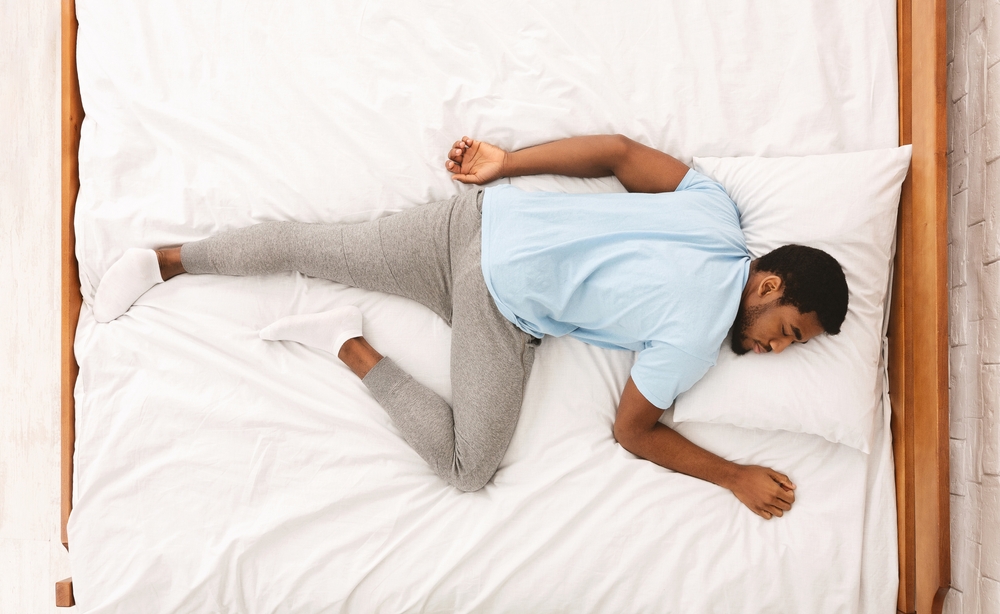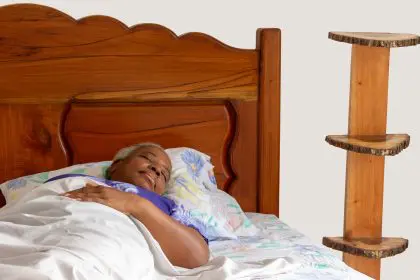That sudden jolt or twitch just as you’re drifting into sleep isn’t your imagination. It’s a real physiological event. One moment, you’re fading into slumber, and the next, your arm or leg flings out as if you were falling. If it startles you, you’re not alone — millions of people experience this strange sensation, and it has baffled scientists and sleepers alike for decades.
The sleep-jerk phenomenon
These body jerks, medically known as hypnic jerks or sleep starts, occur during the transition between wakefulness and sleep. It’s one of the most common involuntary muscle movements, and almost everyone experiences it at some point in their life.
A hypnic jerk usually happens during stage 1 of the sleep cycle. This is the lightest stage of sleep — the doorway between wakefulness and unconsciousness. Your brain is beginning to power down, but it’s still slightly aware of what’s happening. That’s when this sudden, reflex-like motion occurs.
Some people describe the sensation as falling off a cliff or tripping over a rock. For others, it feels like their body is being shocked back to alertness. It may be accompanied by a visual hallucination — a flash of light or a dream of slipping — or a quickened heartbeat.
What causes the twitch
While hypnic jerks are considered normal, the exact cause isn’t fully understood. However, several factors may increase their likelihood or intensity:
Stress and anxiety
When the mind is racing and the body is tense, the nervous system can become overstimulated. High stress levels often prevent the body from winding down smoothly. As you start to relax, your brain might misinterpret the physiological changes as signs of danger. That misreading can trigger a jerk — almost like the body is checking if it’s safe to fall asleep.
Caffeine and stimulants
Coffee, energy drinks and even chocolate can interfere with the body’s ability to transition into sleep smoothly. Caffeine stimulates the central nervous system, and when taken late in the day, it can make hypnic jerks more likely. The body wants to sleep, but the brain is too stimulated to let it happen without interruption.
Sleep deprivation
If you’ve been skipping sleep or keeping irregular hours, the body’s response can become exaggerated. Exhaustion can make the transition into sleep more abrupt, and the nervous system may not have time to regulate itself properly, resulting in a sudden jerk.
Physical activity late in the day
Working out too close to bedtime can raise adrenaline and heart rate. While exercise is great for sleep quality overall, intense movement in the evening may overstimulate the muscles and nerves, making them more reactive during early sleep stages.
Evolutionary reflex
Some researchers believe hypnic jerks are an evolutionary reflex. Our ancestors, sleeping in trees or unstable environments, may have developed this twitch as a built-in safety feature — a last-minute check to make sure they weren’t falling. When the muscles relax too quickly, the brain interprets it as a fall, and jerks the body awake.
When to seek medical advice
Hypnic jerks are usually harmless. However, if they’re happening frequently, violently or disturbing your sleep quality, it could be time to speak to a medical professional. There are several situations where it’s smart to seek guidance:
- Persistent sleep disruption – If the jerks wake you up repeatedly or prevent you from falling asleep
- Accompanying symptoms – Muscle weakness, confusion or changes in consciousness could point to something deeper
- Other movement issues – If you experience leg twitching throughout the night, it could signal restless legs syndrome
A doctor may recommend a sleep study to rule out more complex conditions or adjust your sleep hygiene to reduce disruptions.
Reducing sleep jerks
While you can’t always stop hypnic jerks entirely, you can reduce their intensity or frequency with small changes to your lifestyle:
Create a soothing bedtime routine
Set the tone for sleep with calming rituals. That might include dimming the lights, reading a book or taking a warm bath. Avoid screens at least an hour before bed, since blue light can interfere with the brain’s melatonin production.
Maintain consistent sleep times
Go to bed and wake up at the same time every day, even on weekends. A stable sleep rhythm trains your body to wind down naturally and transition smoothly into sleep.
Limit stimulants
Cut back on coffee, energy drinks and even sodas, especially in the afternoon and evening. Switch to herbal teas or water in the evening to help your nervous system calm down.
Time your exercise appropriately
Exercise helps you fall asleep faster and promotes deeper sleep — but try to finish your workout at least two to three hours before bed to avoid overstimulation.
Manage stress
Meditation, yoga, deep breathing or journaling can help release mental tension. Reducing stress throughout the day lowers the chance of bedtime jitters or jerks.
The science still evolving
Researchers are still exploring the full neurological mechanisms behind hypnic jerks. Functional MRIs and sleep studies have revealed that areas of the brain responsible for motor control remain slightly active during early sleep stages. It’s this overlap — a mixture of semi-conscious thought and physical shutdown — that may be the breeding ground for these sudden movements.
Another theory suggests that during the transition into sleep, brain waves slow down, and the nervous system enters a phase of reduced communication. Sometimes, a sudden burst of electrical activity travels down the spinal cord, triggering a physical twitch. It’s a blip in the system, a momentary miscommunication that doesn’t usually signal anything dangerous.
The bottom line
That jerk you feel right before drifting off to sleep is a natural quirk of the human body. It’s not a glitch or a red flag — it’s a signal that your body and brain are easing into rest, sometimes a little awkwardly. While the sensation can be surprising, it’s almost always harmless.
Understanding why this happens removes some of the fear. It also encourages better sleep hygiene, which benefits not just your nights but your overall health.
If you find these movements troubling or disruptive, small shifts in lifestyle can help restore calm to your evenings. And if the problem persists or worsens, don’t hesitate to check in with a professional. Your sleep should be a place of peace — not a nightly jump scare.













